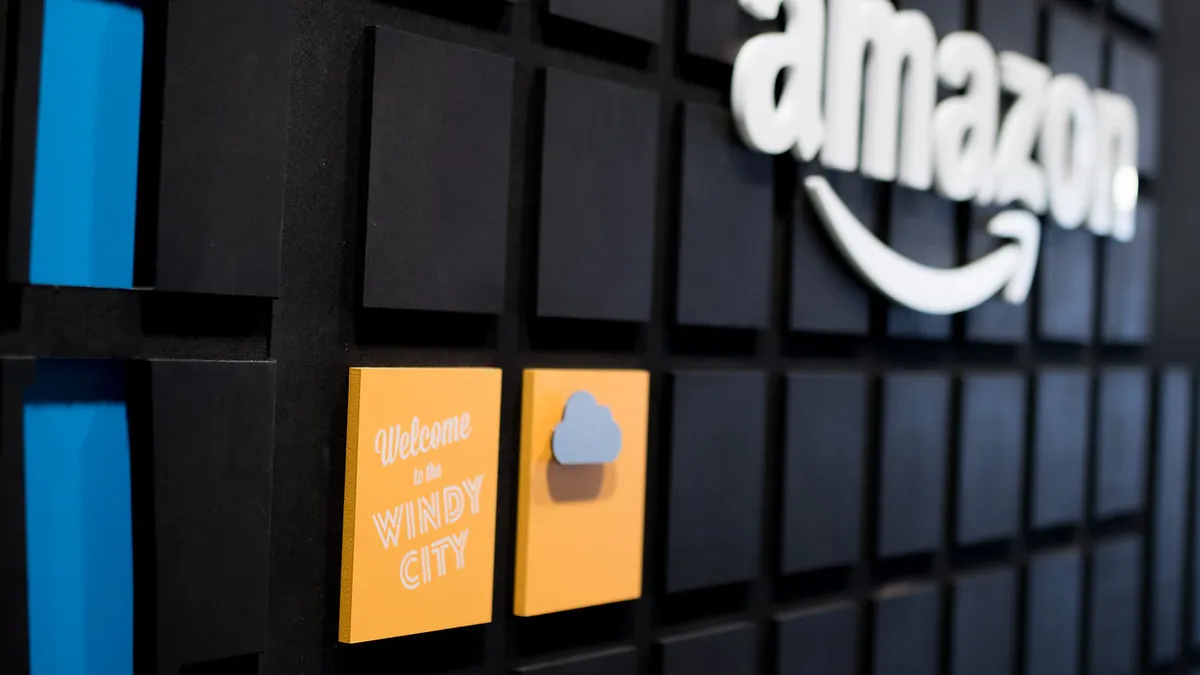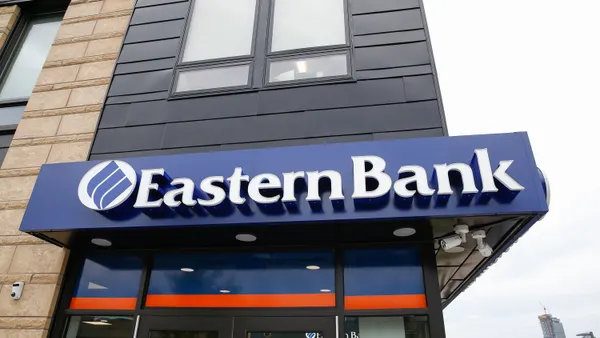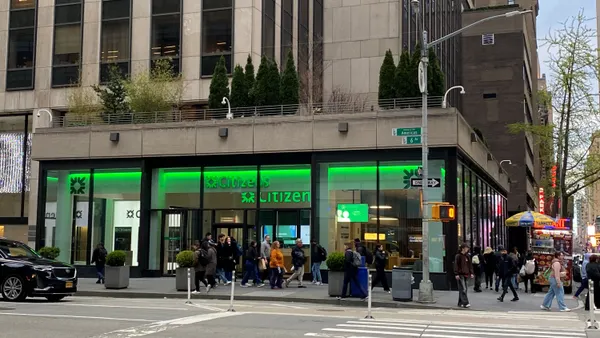Dive Brief:
- Tech giant Amazon abandoned its effort to create checking accounts, telling one of its potential banking partners, JPMorgan Chase, it was concerned it would be subject to banking regulations, according to a report from The Information.
- The news came to light days after fellow tech company Google announced it would roll out checking accounts next year, backed by Citi and Stanford Federal Credit Union.
- Tech companies are increasingly finding themselves under scrutiny from lawmakers and regulators when they expand into new business models and revenue streams.
Dive Insight:
Amazon held preliminary discussions with big banks early last year about partnering to provide checking services, The Wall Street Journal reported. But the tech company apparently scrapped the idea in its early stages, two sources told The Information. An Amazon spokeswoman, however, told the publication the company "doesn’t comment on rumor or speculation."
Checking accounts can be an advantageous entry point into banking for tech companies. The accounts offer substantial customer data, including salary, where people shop, and what bills they pay. They also have a long shelf life — the average U.S. adult has used the same primary checking account for about 16 years, according to a Bankrate survey.
Concerns over data privacy and security, anti-money laundering protections and monopolization have led authorities to keep a close eye on tech companies’ expansion. Lawmakers on Capitol Hill grilled Facebook executives this summer and fall over the social network’s plan to create a digital currency, Libra. The New York Department of Financial Services last week began looking into allegations that Apple Card’s algorithm discriminates against women. And lawmakers in August suggested that Amazon’s subsidiary, Amazon Web Services (AWS) — along with Microsoft Azure and Google Cloud — should be considered "systemically important" because of their role in holding customer data. That effort came in the wake of a Capital One breach, unveiled in July, that exposed the personal information of 106 million customers. Capital One uses AWS public cloud.
Amazon may still be discussing a checking account product with another bank, or it could revive its talks with JPMorgan, The Information reported.
The tech giant has made other forays into the payments market. Amazon Pay lets users buy items on other retailers’ websites by entering their Amazon login information during the checkout process. The company also offers a credit card, issued by JPMorgan Chase, that gives Amazon Prime members 5% back when they buy on Amazon or at Whole Foods grocery stores. And in September, Amazon expanded its PayCode program to the U.S. The no-fee option lets a customer choose "Amazon PayCode" at checkout and bring payment to a participating Western Union location within 24 hours.












